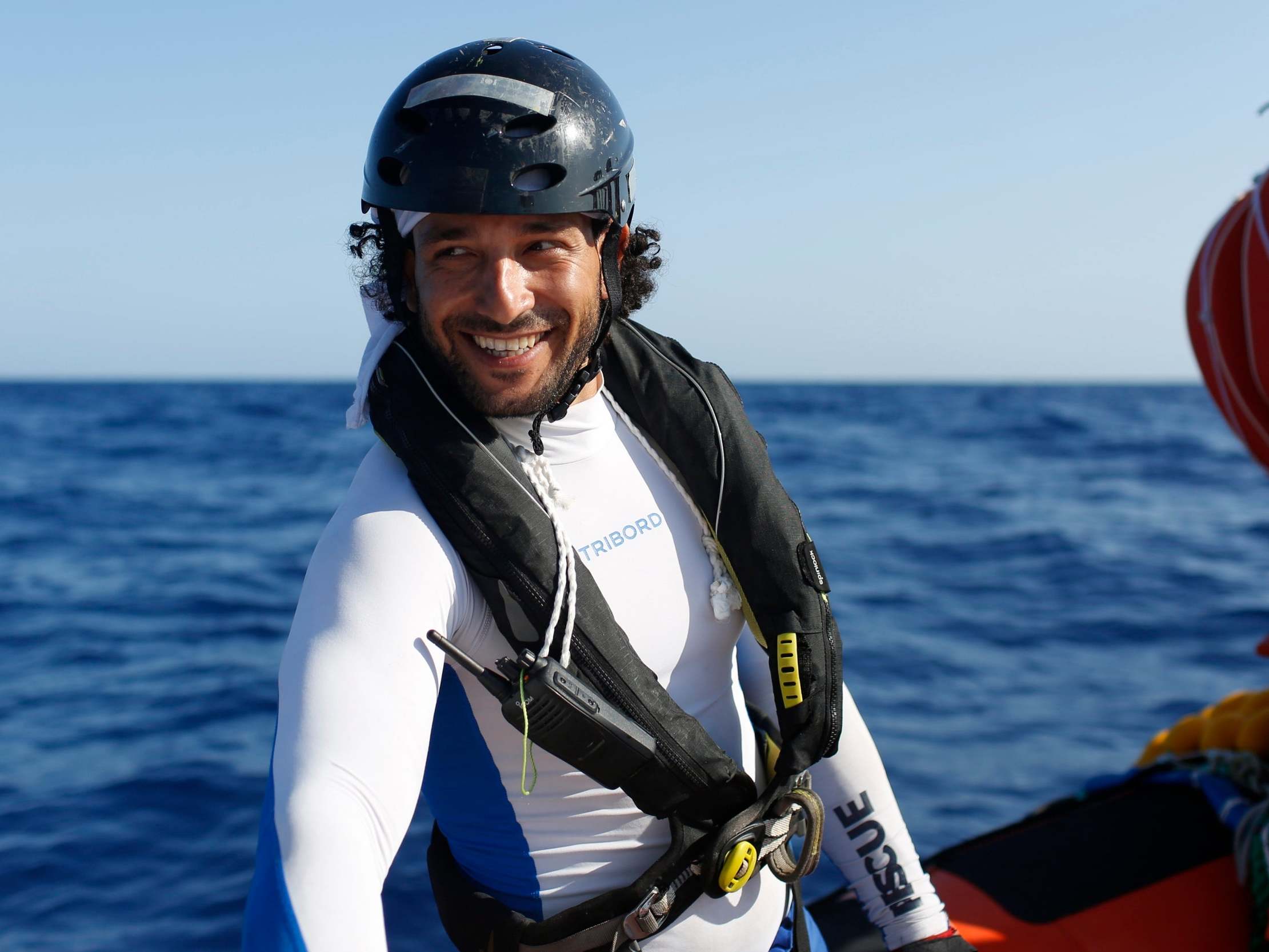Shipwreck survivor rescues other migrants trying to reach Europe by sea
'As soon as I touch their skin, I have memories from once upon a time'

Every time Hassan Ali Salem pulls a man, woman or child from a rickety boat or straight out of the water, he relives his own trauma in the Mediterranean Sea.
The Egyptian says he was just 16 when he survived a shipwreck in 2004, saved by another migrant who drowned when a packed wooden boat capsized in rough seas before it could reach Italy.
Now 31, Mr Salem is doing the rescuing, trying to help migrants who set off from Libya in flimsy vessels arrive safely in Europe.
“As soon as I touch their skin, I have memories from once upon a time,” Mr Salem said.
“I say to myself: ‘You’ve finally made it, another Hassan has arrived. He’s alive.”’
He is one of 22 people of various nationalities working for humanitarian groups SOS Mediterranee and Doctors Without Borders aboard the Norwegian-flagged Ocean Viking, the biggest charity rescue ship currently operating in the central Mediterranean.
The destination: international waters north of Libya where thousands of migrants have drowned in recent years in desperate attempts to reach Europe.
The team is getting ready for a tough assignment.
“People on land have no notion of what we see,” said Claire Faggianelli, a boat mechanic from France who has previously worked as a diving instructor and a volunteer lifeguard.
While the activities of the humanitarian groups have sparked heated debate in Europe — critics say they just encourage more migrants to make the perilous crossing from North Africa — people have lost sight of the human tragedy playing out in the Mediterranean, Ms Faggianelli said.
“Don’t you realise what is happening? There are people drowning every day,” she said.
Italy’s decision to end a major rescue operation in 2014 prompted multiple aid organisations to launch their own rescue missions in the central Mediterranean.
While their efforts were initially welcomed, they no longer have the sympathy of European governments committed to reducing irregular migration.
Italy and Malta, the two European countries nearest to the rescue zone off Libya, routinely refuse entry to such ships, leading to tense standoffs at sea.
In Italy, investigations of aiding illegal immigration have been launched against captains of humanitarian rescue boats, but so far none has been formally charged.
“I’m not going to apologise for saving lives,” said Charlie Andreasson, a 54-year-old Swedish sailor with a red beard and a pirate-like bandana.
Mr Andreasson, who has also joined activists attempting to break the Israeli-Egyptian blockade on the Gaza Strip, thought he had done his last Mediterranean rescue mission last year, but said the anti-migrant rhetoric he encountered in his home country made him think again.
“The situation is deteriorating in Europe when it comes to xenophobia and racism,” Mr Andreasson said. “So that’s why I came back.”The swearing-in of a new government in Italy may herald a softer approach towards the humanitarian rescue ships.
Former interior minister Matteo Salvini, a hardliner on migration, regularly lambasted the rescue groups on social media and accused them of collusion with human traffickers, which they strongly denied.
Associated Press
Join our commenting forum
Join thought-provoking conversations, follow other Independent readers and see their replies
Comments
Bookmark popover
Removed from bookmarks